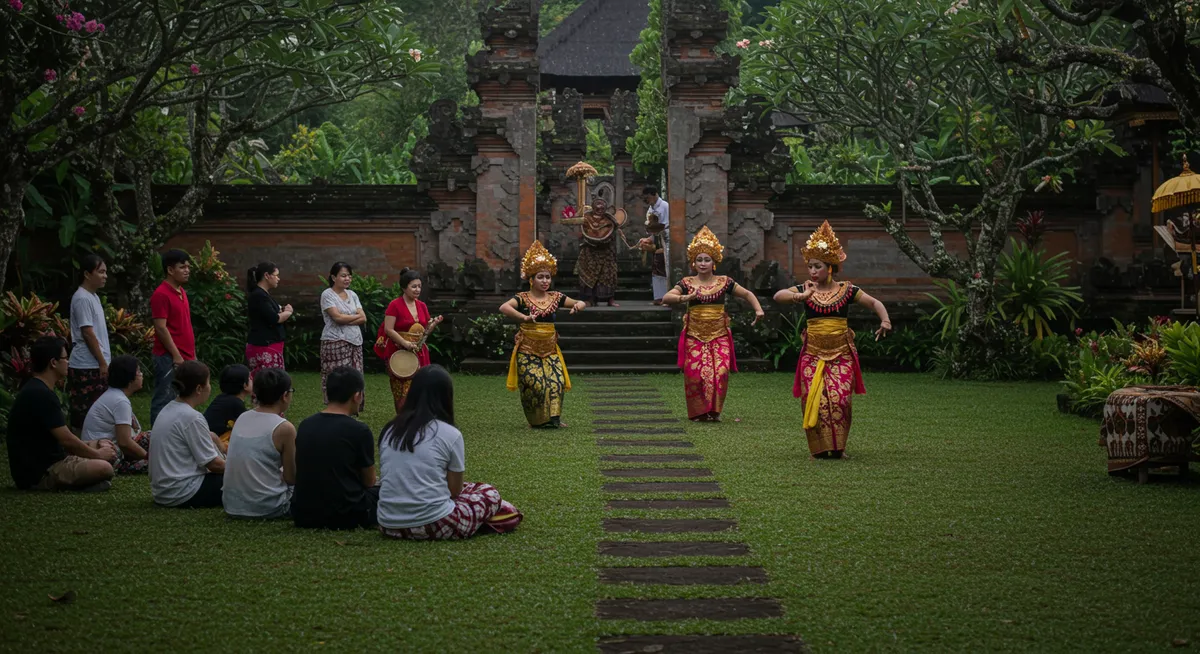
Kerobokan Cultural Insights & Nature Etiquette
Table of Contents
Want to find the best nature experiences for this destination? Chat with our nature tourism specialist!
Get Nature TipsCategory: kerobokan-cultural-insights-and-nature-etiquette
Your Guide to Kerobokan Cultural & Nature Etiquette
Having explored Bali extensively, I've found Kerobokan offers a unique blend of vibrant local life and serene natural beauty. To truly appreciate its charm, understanding Kerobokan cultural insights and nature etiquette is paramount. This guide shares vital tips, drawn from my own experiences, to help you navigate its traditions and landscapes respectfully. By observing local customs and protecting the environment, visitors ensure a more authentic and positive experience for themselves and the community. It's about blending in gracefully and honoring the spirit of this special place.
Embracing Kerobokan's Rich Cultural Tapestry
When exploring Kerobokan, immerse yourself in the profound Balinese Hindu culture. Always dress modestly, especially when visiting temples or attending ceremonies; shoulders and knees should be covered. Sarongs are often provided or can be purchased locally. Furthermore, remember to always use your right hand when giving or receiving items, as the left is considered impure. My personal tip? Observe how locals interact in communal spaces, particularly at the banjar (community hall) or during a cremation ceremony. Understanding these Kerobokan cultural insights ensures you show proper respect. For more general travel wisdom, explore Tourist Nature.
Respecting Kerobokan's Serene Natural Wonders
Kerobokan boasts stunning natural landscapes, from lush rice paddies to tranquil beaches. When exploring these areas, always stay on designated paths to protect fragile ecosystems and private agricultural land. Avoid littering at all costs; carry out whatever you carry in, including organic waste. Remember, locals rely on these pristine environments for their livelihoods and spiritual practices. For instance, when I visited a local waterfall, I made sure to leave no trace behind. Learning proper nature etiquette is crucial here. Discover more about Kerobokan's diverse natural attractions on our dedicated page about Kerobokan nature attractions.
Sustainable Practices for a Responsible Visit
Contributing to Kerobokan's sustainability is easy and impactful. Opt for eco-friendly accommodations and support local businesses, from warungs (small eateries) to artisanal craft shops. Bargaining is common in markets, but do so respectfully and with a smile. Moreover, be mindful of water and electricity consumption, as resources can be limited. Engaging with local guides not only enriches your experience but also directly supports the community's economy. I’ve found that even small actions, like bringing a reusable water bottle, make a big difference. For deeper dives into eco-conscious travel, check out Kerobokan ecotourism experiences. Consider quiet reflection during your best nature walks in Kerobokan, especially near spiritual sites.
Navigating Sacred Sites and Local Wildlife
Bali's spiritual essence is palpable, particularly around its temples and natural shrines. When visiting sacred sites, always enter quietly and respectfully, and never point your feet directly at altars or people. Avoid touching offerings left by locals, as they are sacred. Regarding wildlife, observe animals from a distance and never feed wild creatures, as this can disrupt their natural behaviors and health. The reverence Balinese people have for their natural world, which extends to all living things, is inspiring. I recall seeing monkeys near a temple; it's best to keep a respectful distance. For adventures that highlight responsible exploration, such as discovering hidden waterfalls near Kerobokan, always prioritize preservation.
Frequently Asked Questions
What should I wear when visiting temples in Kerobokan?
Is it acceptable to bargain for prices in Kerobokan?
Adhering to Kerobokan cultural insights and nature etiquette significantly enhances your travel experience, transforming a mere visit into a meaningful connection with the local community and environment. By respecting Balinese customs and acting as a responsible steward of nature, you contribute positively to this beautiful destination. Your mindful actions help preserve Kerobokan's unique charm for future generations, fostering a truly sustainable tourism model. Embrace these tips to ensure your journey through Kerobokan is both enriching and responsible. Plan your respectful adventure and immerse yourself in Bali's heartland.